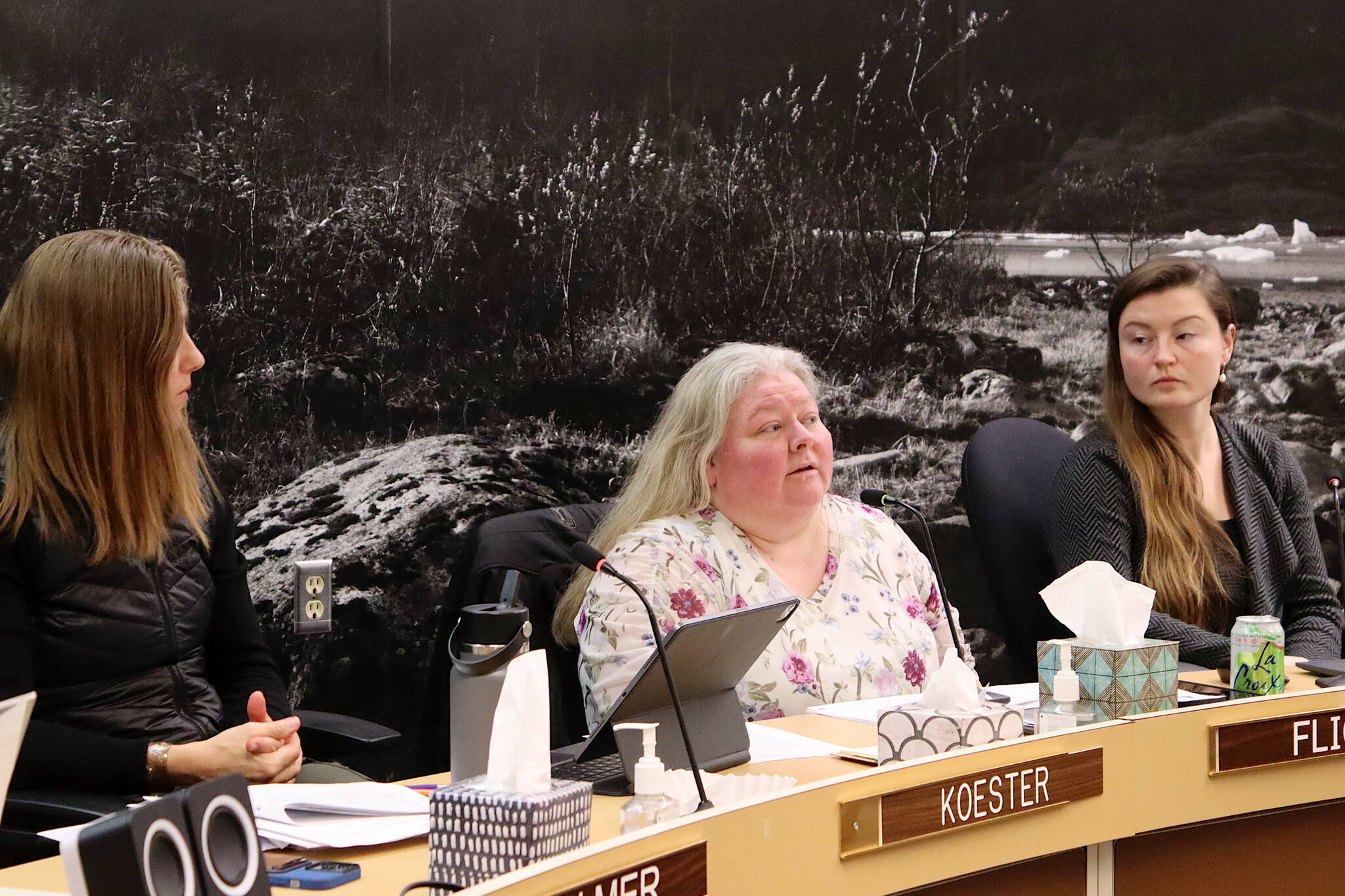This story has been updated to correct comparative assessment rates between 2022 and 2023.
Residential property assessment values in Juneau increased by an average of 1.66% in 2023, compared to a 16% jump in 2022 and 8.4% in 2021, according to preliminary data presented to the Assembly’s Finance Committee on Wednesday.
The overall assessment of all properties rose an average of 1.52% during 2023, with commercial property increasing 1.24% and vacant land 0.9%, said Angie Flick, finance director for the City and Borough of Juneau.
She noted the data is not final since the appeals and exemptions process is still pending, but doesn’t expect any variance to significantly alter the overall assessed value of property within Juneau.
“The housing market seems to have cooled, anecdotally,” she said in an interview after Wednesday’s meeting. “If you watch homes on the market for sale they’re staying there longer…We still have a housing crisis in Juneau, that’s not to say that that’s no longer an issue. But the market seems to have cooled substantially compared to last year (and) a couple years before that.”
The change was much less for commercial assessments, which rose about 6% in 2022.
But, as in past years, some residents are reporting assessment increases far above the average. JoAnn Wallace, a realtor who unsuccessfully ran for Assembly last year, said in an interview Thursday an Auke Bay fourplex she uses as a rental property increased about 25% in 2023.
“It’s so sad because I don’t want to raise my rents,” she said. “But I’m being forced to have to do that because the costs just keep going up.”
Wallace said the increase is surprising — and questions the methodology the city is using for assessments — because she shares Flick’s view the housing market is cooling off.
“I would like to see the Assembly make some kind of move to say you can’t increase property taxes more than two or three percent a year,” she said.
Juneau voters in 2022 repealed an ordinance that required disclosure of real estate prices, making it one of 12 states lacking such a requirement. Flick, after Wednesday’s meeting, said that impairs the local assessment process.
“What that means is our assessor’s office is working to an end without full data and so they use the data they have, and they use the tools and the processes in the trade,” she said. “They follow all of the standards. Certainly having full information would create better results.”
Notices of the assessed value of local properties as of Jan. 1 were mailed to property owners on March 1, according to a CBJ announcement. A 30-day period to file a petition for review ends at 4:30 p.m. April 1.
The total preliminary assessed value of all Juneau properties was nearly $6.7 billion, compared to nearly $6.6 billion the previous year. This year’s total includes about $1.74 billion in commercial property, $4.68 billion in residential and $252 million in vacant land.
Total valuation is a key tool for the Assembly in determining the mill rate (current 10.16) as part of the annual process for determining next year’s municipal budget. While there may be some adjustment in the total value after exemptions and appeals are accounted for, “I don’t think it would make a material difference,” Flick said.
Wallace said she hasn’t filed appeals on her rental property or the Lemon Creek residence she lives in since it appears she could potentially sell the properties for the values assessed. She also noted that while the assessment for her Lemon Creek property increased about 13% in 2022, it increased by only about 1% during the past year.
The increase in assessments — along with the associated sharp rise in housing and rental prices, and a critical shortage of available housing — has been a contentious issue in Juneau as well as elsewhere in the state in recent years. Last year in Haines a dramatic rise in many residents’ property assessments resulted in that borough’s Assembly ending its contract with assessor Michael Dahle — who previously worked as an assessor in Juneau — after nearly 600 residents signed a petition calling for his removal.
That controversy, along with subsequent research about assessments statewide, resulted in a bill being introduced by state Sen. Jesse Kiehl, a Juneau Democrat, establishing baseline requirements for municipal property tax assessments. However, Flick said Juneau already follows the qualification requirements in the bill. Also, some residents testifying during a hearing on the bill last week said it doesn’t go far enough because it doesn’t set a limit on increases of assessments.
’• Contact Mark Sabbatini at mark.sabbatini@juneauempire.com or (907) 957-2306.

